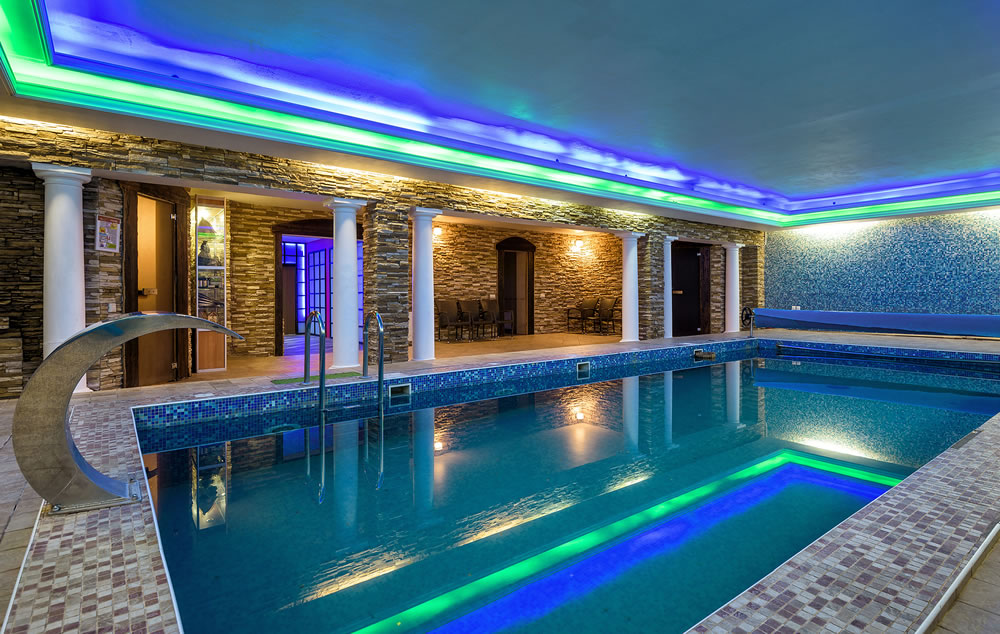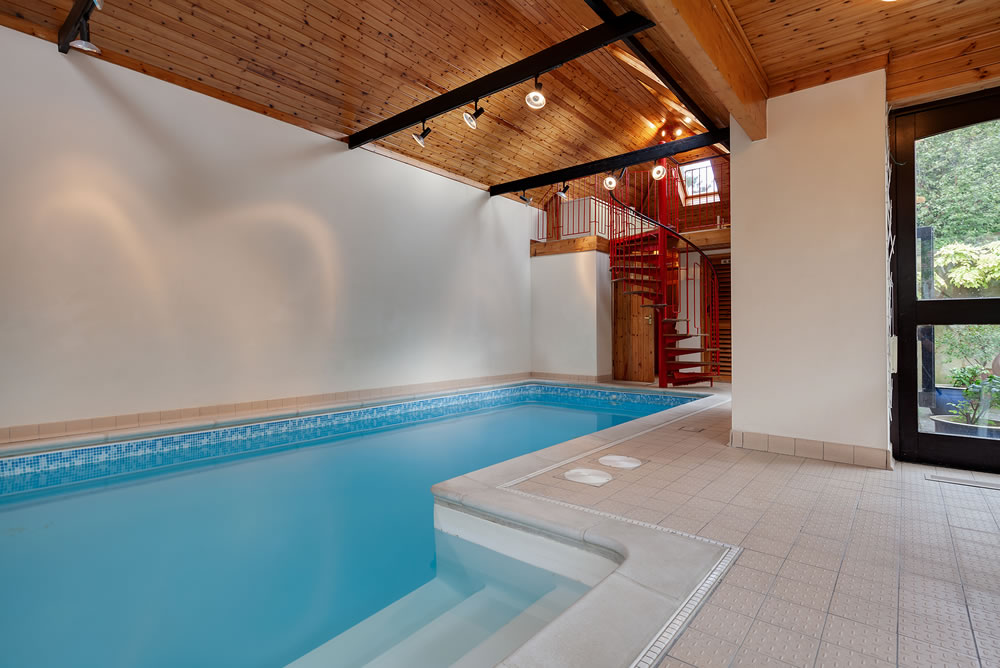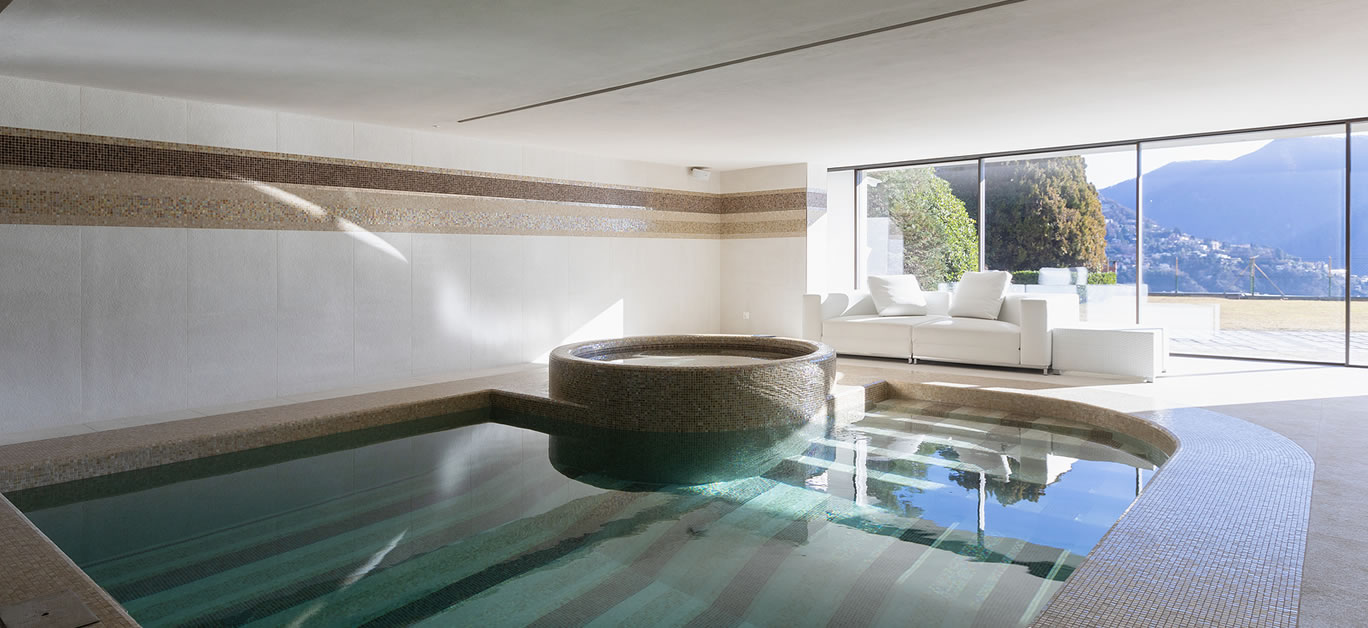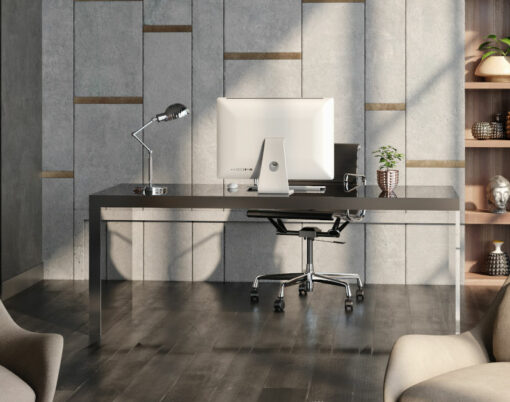There are few home features that exude luxury quite like an indoor heated swimming pool – so if you’re thinking of up-levelling your abode to lavish new heights in 2023, then having one installed is a great place to start.
Providing you with a place to relax and unwind, as well as to take regular exercise in the peace and quiet of your personal surroundings, a home swimming pool has plenty to offer and will undoubtedly enhance your quality of life – but before you take the plunge, it’s important to know what you’re getting yourself into and educate yourself on the maintenance that’s required to keep your pool at its best.
Here, we take a look at all you need to know to keep your heated home swimming pool safe, clean and all-round pristine.
Weekly pool maintenance
Swimming pools require more maintenance than many people realise, and a weekly servicing schedule should be adhered to to ensure cleanliness and increase its overall lifespan.
Preventing any problems from arising, as well as addressing any minor issues that do early on, will mean you’ll be unlikely to have to spend out large sums of money on repair bills later down the line.

The things you should be doing on a weekly basis include checking the water level and topping up as required, cleaning your filters and skimmer baskets, vacuuming the floor of the pool and brushing down the walls.
As well as keeping your pool clean, you’ll also need to ensure you check the pH levels of the water in your pool each week, and check and add pool chemicals as required.
Why a robotic pool cleaner is a must
Robotic pool cleaners are a great investment and will do some of the hard work for you when it comes to keeping your pool clean. These handy pieces of equipment are self-driven and thus operate independently from your filtration system, using intelligent technology to calculate a cleaning pattern that is customised to suit your needs. Collecting dirt and debris so that you don’t have to do it manually, they ensure that every inch of your pool has been attended to, and some models are so efficient that they are estimated to save you up to a whopping 94 percent on energy costs.
Servicing your pool machinery
As well as completing your weekly maintenance tasks, it’s also important to have regular servicing carried out on your machinery. Boilers and heat pumps must be assessed at least annually and checked for any leaks to ensure they continue to satisfy gas safety regulations.
If you’re struggling to get your pool to reach the right temperature or hear any unusual noises coming from the plant room, then these are signs it’s time to bring in a professional to inspect. Issues like these are important to address sooner, rather than later.

Chemical treatments
Keeping your pool’s pH level balanced is one of the most important tasks for homeowners to stay on top of to ensure the water is clean and safe to swim in at all times and to keep the health of your pool in check. The chemical treatments you’ll need to use will depend on your pool type and the materials it is made from, so be sure to check the specifics with your manufacturer or installers before taking any action.
The ideal pH rating for your swimming pool water ranges between 7.0 and 7.6. Below these levels, water becomes too acidic and your pool’s metals and finishes may begin to corrode, while too alkaline and your chlorine may become ineffective, with calcium salts in the water leading to scaling.
Pool chemicals should always be stored in separate containers in a cool, dry place and away from sunlight – and it’s important to make sure you’re wearing the correct PPE before handling them.
A home swimming pool is an excellent addition to any high-end home, and can dramatically increase your property’s value, too – but making sure to look after yours by carrying out the correct maintenance and sticking to a regular schedule will ensure it continues to look and function at its best for many years to come.






















